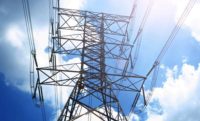A federal appellate court in San Francisco on May 28 denied the U.S. Army Corps of Engineers’ emergency request to allow oil and gas pipeline builders to use an expedited nationwide permit for minimally invasive discharges into route water crossings while judges consider a federal government appeal of a lower court’s April ruling that the permit is not legal.
The appellate court said the government was unlikely to succeed on the merits of its appeal of a Montana district court’s decision that the Corps violated the Endangered Species Act when it reissued the NWP-12 permit in 2017 for the Keystone oil pipeline.
While the district court later allowed power transmission and other utility projects to still use that permit, oil and gas pipelines now must seek an individual permit for each project water crossing. In its appeal, the U.S. Justice Dept. said the Montana court wrongly extended its ruling to all pipeline projects when plaintiffs only sought a decision on the Keystone project.
The American Fuel & Petrochemical Manufacturers trade group told the appeals court that the lower court ruling for pipelines threatens to disrupt supply chains of petrochemicals and other products critical to the U.S. economy that depend on oil as a feedstock material. “The delay will slow polypropylene production, which multiple industries need to manufacture critical supplies, including to respond to the current health crisis,” the group said.
One AFPM member will have a critical pipeline to transport feedstock from a propylene manufacturing facility to a polypropylene production plant that supplies a variety of plastic products manufacturers delayed for many months, the filing said.
The project, which the group did not name, involves two lengths of pipeline, one was built under NWP 12, but the second section was awaiting the Corps’ approval and is now delayed by the lower court’s decision.
Without a stay by the appeals court, the new pipeline may require an individual permit, which would take the Corps up to nine months to issue once it receives an application, the group said. The construction originally was planned to start in June and completed in November.
“The delay will slow polypropylene production, which multiple industries need to manufacture critical supplies, including to respond to the current health crisis,” the group said.
It is not clear is the Justice Dept. now will seek a decision from the U.S. Supreme Court.





Post a comment to this article
Report Abusive Comment